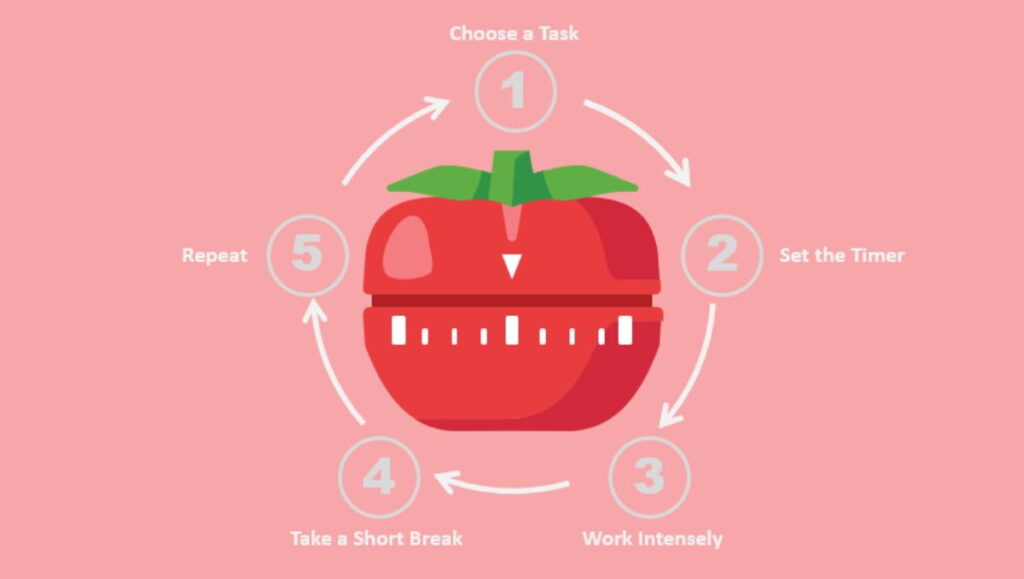With growing competition in academics, developing the ability to study for long hours is crucial. Both school and college students struggle with long study hours, particularly during exams. So, during these intensive academic sessions, they look for ways to extend their sitting time for studying.
Not only creating a to-do list or setting goals is enough to achieve success in life. Motivation and dedication play a vital role in this process. There are some ways to add more hours to your study routine without losing focus. This blog will feature effective tips for long study hours that can help you train your mind for an extended study routine.
Tips for Long Study Hours and Staying Productive
How to Study Productively?
Most students want to study for long study hours without losing focus and getting bored. However, it’s quite a challenging task but can be made possible through certain effective tips.
1. Create a Study Schedule

The first thing you must begin with is creating a detailed study schedule. When it comes to exams, you may be stressed about how you will finish the entire syllabus. To avoid this you need to create a perfect study schedule that prioritizes the topics you find the most difficult. Covering difficult topics in the beginning can be a wise decision, as you’ll be able to understand them more easily when your mind is fresh. Additionally, it’s important to consider your mental health during this process.
2. Pomodoro Technique

The Pomodoro technique is an effective way by which you can achieve long study hours. This helpful time-management technique can help you focus better by breaking down the work into manageable tasks. Set the timer of 25 minutes four times for a particularly lengthy topic and take a break of 5 minutes after every 25 minutes during this 2-hour session. After 2 hours when you’ll complete your topic, you can take a long break of 15 to 20 minutes. After the break, you can repeat the step by setting four 25-minute intervals.
3. Create a Focused Environment to Study

The environment you study in significantly affects your study routine. Create your study room suitable with fewer distractions and it must be well-lit. A poorly lit room might cause boredom and reduce your energy levels. You can paste some motivational quotes and posters on the wall of your study room that will keep you motivated while studying. Additionally, organize your study materials, books, and other things effectively to minimize wasting of time.
4. Eat Nutritious Food

For effective studying, you need to keep your body healthy and active, which you can do by taking a balanced diet. Add superfoods like berries, nuts, whole grains, yogurt, tomatoes, etc. to your diet that will help you increase your study hours and productivity. You must avoid heavy, oily foods, junk food, etc., as they cause laziness.
5. Sleep Well for Better Retention

To not feel lazy while studying, you must give your body proper rest by sleeping for an adequate time. Many students don’t keep a watch on their sleeping schedule, especially during exams, which causes more stress and anxiety. By prioritizing restful sleep before exams, you can retain information effectively. Also, while studying, you can take small naps whenever needed to refresh your brain and body.
6. Exercise Everyday to Stay Physically Active

Getting regular exercise is one of the best productivity tips to stay focused while studying since it keeps you mentally and physically fit. Set aside a minimum of half an hour of your daily routine for exercise, yoga, walking, etc. This will assist in keeping you full of energy throughout the day, remove your stiffness, and open up your nerves. Walking around during breaks can be effective in boosting your focus and output.
7. Active Learning Techniques

Most of the students spent hours studying passively, which didn’t help them to memorize and retain the topics they studied. To avoid this, you can adopt a few active learning techniques, including speaking loudly as if you’re explaining that particular topic to the class, writing difficult points or words while reciting them, creating diagrams or flowcharts while studying long topics, etc.
8. Relaxation Techniques

While taking breaks during your study session, you must relax your mind with meditation, deep breathing, listening to soothing music, etc. This will help your brain to refresh, and you can concentrate and retain the information better after a break. At least you must close your eyes, turn on soothing music, and focus on your breathing for 10 to 15 minutes. This will help you replenish your energy, recharge your brain, and refresh your body for the next study session.
9. Mix-up Subjects

Mixing up subjects will reduce the chances of boredom and also effectively help you retain the information for longer. After every 1 or 2 hours, you can switch the subject or topic to avoid getting tired from the same chapter or subject. You can allocate specific time to each time depending on its difficulty and start with the topic or subject you find most tough.
Conclusion
A perfect balance of food habits, sleeping patterns, meditation, and physical activity is necessary for achieving extended study sessions. Studying for long hours doesn’t only mean sitting all day at your desk with your books. By implementing these effective studying techniques, you can see the difference in your productivity and retention power.
At Sanjay Ghodawat International School, Pune, widely recognized as one of the best schools in Pune ,students are assisted with effective study strategies to help retain more information and study more productively. Teachers, through a disciplined daily routine, encourage students to manage their time efficiently, prioritize the most important tasks, take care of their health, and stay energized for long study sessions.
Also read – What Makes Students Not Participate in Class?








Leave a Reply